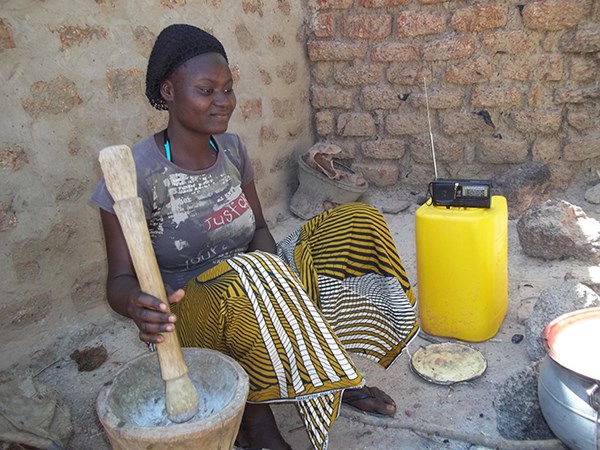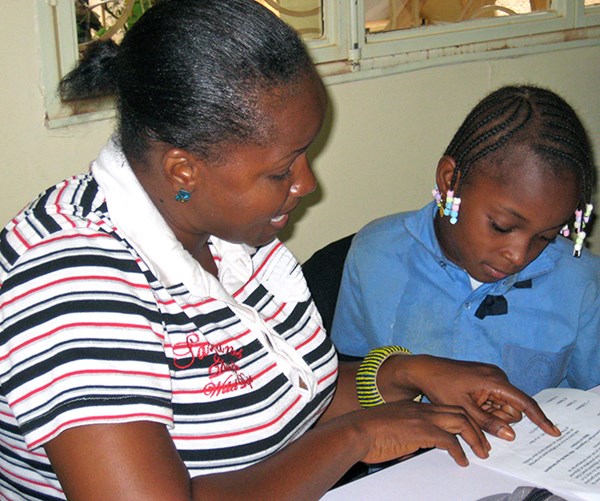SOUTH BURLINGTON, VT., Oct. 23, 2014 (GLOBE NEWSWIRE) -- People in Burkina Faso listen to the radio, and for the past two years the radio has provided more than just hours of entertainment, it has also provided information that leads to healthier lives. This increased information results from the work of an international development nonprofit that focuses on entertainment-education, Population Media Center.
"The results in Burkina Faso demonstrate the power of our programs in providing compelling evidence that entertainment-education can help people adopt healthier, more prosperous lives," says Bill Ryerson, Population Media Center's President and Founder. "We're seeing changes in behavior over relatively short periods of time because this approach allows the audience to get emotionally attached to characters and learn vicariously."
Ryerson is referring to the recently completed impact evaluation conducted after Population Media Center (PMC) aired two separate 156-episode soap operas twice per week over 18-months in Burkina Faso. The results show impact, including listeners being 1.8 times more likely to have volunteered to be tested for HIV than non-listeners.
"The programs have allowed the people of Burkina Faso to have access to the information necessary to decide freely and responsibly how to manage their reproductive health," says Mamadou Kante, UNFPA's Burkina Faso representative. "UNFPA is pleased to see the enthusiasm generated by the soap operas among the audience."
In September 2012, Population Media Center (PMC) began airing the two radio soap operas across 22 community radio stations aimed at increasing understanding around issues such as family planning, reproductive health, maternal and child health, female genital mutilation, HIV/AIDS, and girls' education. Yam Yankré ("The Choice") aired in Mooré and Here S'ra ("The Road To Happiness") aired in Dioula, which are the two primary languages spoken in Burkina Faso.
PMC produces radio and TV soap operas around the world adapting the Sabido methodology, named after Miguel Sabido who developed the approach in the 1970s. During the course of these long-running dramas, PMC creates culturally specific stories with characters to model behavior. Local teams of writers, producers, and actors create the program using extensive formative research as a guide to the issues addressed in each drama.
"We have a fabulous team in Burkina Faso," says Kriss Barker, PMC's Vice President for International Programs, "and their hard work, strong writing, and dedication to the issues resulted in two serial dramas that achieved these kinds of results."
PMC measures the impact of its serial dramas through methods like clinic monitoring, participatory and qualitative research, and a comprehensive assessment at the end of the broadcast that collects information from a nationally representative sample with a 95 percent accuracy rate.
The end of broadcast assessment found that people who listened were 1.6 times more likely than non-listeners to say they would use a modern method of family planning to delay or avoid pregnancy in the next 12 months and they were 6 times more likely to say that they had ever used breastfeeding (lactational amenorrhea) as a contraceptive method to delay or avoid pregnancy than those who had never listened to Yam Yankré or Here S'ra.
The results also showed that approximately 36 percent of people (more than 2.2 million) in Burkina Faso had heard of at least one of PMC's dramas and 13 percent (785,875 people) listened regularly, tuning in at least once per week.
At the closing ceremony for the dramas, Amedeo Prosper Djiguemdé, Burkina Faso's Secretary General for the Ministry of Health, said that the comprehensive assessment at the end of the broadcast showed that PMC's strategy works and that it should be continued in order to build on the good progress made. "The strategy of PMC is innovative," Djiguemdé said.
ABOUT POPULATION MEDIA CENTER (PMC):
Population Media Center (PMC) is a nonprofit, international nongovernmental organization, which strives to improve the health and well-being of people around the world through the use of entertainment-education strategies, like serialized dramas on radio and television, in which characters evolve into role models for the audience for positive behavior change. Founded in 1998, PMC has over 15 years of field experience using the Sabido methodology of behavior change communications, impacting more than 50 countries around the world. www.populationmedia.org
Photos accompanying this release are available at:

